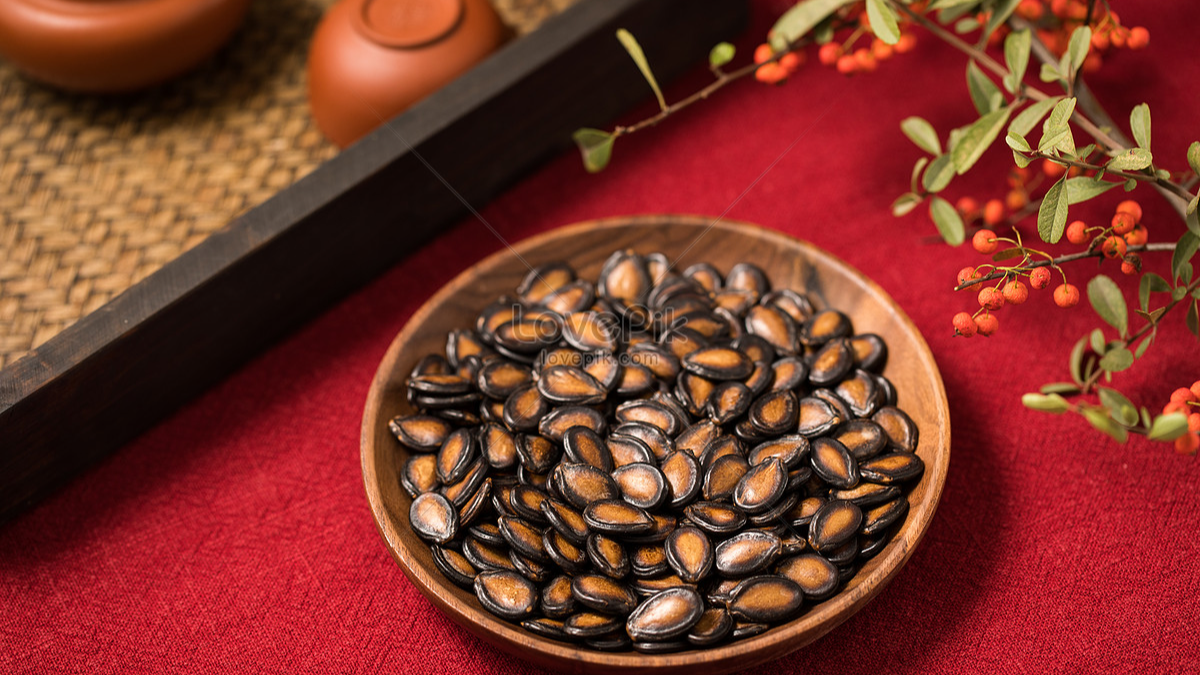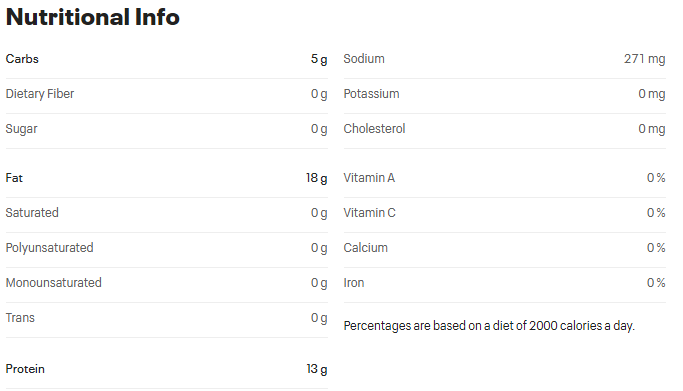When you think of watermelon, you probably have an image of a red, squashy, juicy fruit, but the seeds are probably not what you expect. These dark seeds are typically removed from the watermelon and eaten. But did you realize that these dark seeds have unique nutritional qualities? The tiny grains are extraordinarily wholesome and nutritious. Watermelon is an excellent fruit for hydrating because it is filled with vitamins and minerals and contains 92 percent water. Its roots are incredibly nutrient-dense.
These seeds are low in calories and high in micronutrients like potassium, magnesium, and zinc. Watermelon seeds play a significant role in the Diabetes Food Chart since they improve blood sugar control, immunity, and heart health. Although entire watermelons are likely to include their seeds still, the majority of pre-cut watermelons you purchase from the shop will be seedless. (Of course, you could always get a seedless watermelon, but those are typically more expensive.)
Watermelon Seeds Nutrition Facts
What are Exactly Watermelon Seeds?
Black and white seeds are seen in watermelons.” White seeds are immature seeds, so you can’t use them to establish a watermelon plant. However, you might consume the white seeds without recognizing them. Black seeds are the seeds found in a standard watermelon, and they can be planted in the ground to sprout a watermelon plant.” When you eat the watermelon flesh, the white seeds are soft and straightforward to swallow. Despite being labeled as “seedless,” these watermelons nevertheless contain seeds. Watermelons with seeds still include the white seeds. Therefore, they are entirely safe to ingest and would be difficult to remove.
Should you Remove the Black Seeds?
No, the black seeds don’t need to be taken out. But given that they have little flavor and are difficult to chew, you might wish to. The soft, white seeds are more delightful to eat than the hard, black seeds since they are much simpler to chew. Both are healthy to eat, but since the black seeds are difficult to chew and make eating the watermelon flesh more complicated, most people spit them out.
However, it’s okay if you’re too preoccupied eating the watermelon slices to bother picking out the seeds. If you do swallow one, you will be fine. If you’ve heard that eating watermelon seeds can cause a plant to grow inside you, relax; this is untrue.
How to Use Watermelon Seeds?
Refraining from eating watermelon seeds is unnecessary, and it may use them in various ways to benefit from their flavor and nutrition.
For instance, you could roast the seeds from a watermelon. There are many minerals in roasted watermelon seeds, and they also contain good fats like omega-3s. Additionally, they provide potassium and magnesium, which promote post-workout hydration and electrolyte balance.
Even watermelon seed butter is possible. (I’m unsure of how it would taste. Before making your jar, get a pot of watermelon seed butter.) Spread it on toast, fruit, crackers, and other things. If you have the space, you may even plant those black seeds in your backyard garden.
Roasting Watermelon Seeds
- Rinse and dry the seeds. They will roast best when they’re completely dried.
- When dehydrated, toss the watermelon seeds with olive or grapeseed oil. “To save calories, use a spray bottle and spritz oil on the seeds to help disperse the oil,” Shames says.
- Spread the seeds evenly on a baking sheet; sprinkle with salt. Then, bake at 325 degrees F (163 degrees C) for about 10 to 15 minutes.
To eat, crack off the shells, and enjoy. Play around with seasonings, too. “For seasoning variety, you could add cayenne pepper or cinnamon and a touch of sugar,” Shames suggests.
What are the Health Benefits of Watermelon Seeds?
Watermelon seeds are packed with nutrients, including proteins, vital fatty acids, magnesium, and zinc, so that they can support our bodies surprisingly. Here are some of the significant advantages:
Improves Skin Health
The watermelon seeds that have been sprouted, which are rich in vitamin C and other antioxidants, assist in cleansing your skin. Its oil is frequently utilized in a variety of cosmetic items to cure acne and the beginnings of aging. Magnesium, which is abundant in watermelon seeds and helps to improve the appearance of your skin overall. It is helpful for disorders including eczema and other dry-itching skin conditions. Your dry, drab skin will be moisturized with watermelon seeds. Because it has the power to speed up cell division, repair, and protein synthesis, the zinc found in seeds can slow down the aging process.
Helps in Strengthening the Hair
Everyone appreciates having healthy hair. So why not accomplish this with watermelon seeds? Proteins, iron, magnesium, zinc, and copper are abundant in watermelon seeds, and these nutrients have been shown to enhance hair quality. These seeds encourage hair growth and strengthening, and the seeds’ manganese content aids in reducing hair loss and harm.
Improves Heart Health
There are numerous ways that watermelon seeds can improve heart health. Contains both monounsaturated and polyunsaturated fatty acids in reasonable amounts. According to studies, these healthy fats can help prevent heart attacks and strokes. This seed has a high magnesium content, which protects the health of your heart and maintains normal blood pressure.
Watermelon seeds’ anti-inflammatory, antioxidant, and vasodilator properties may explain their benefits to a healthy heart. The iron it provides is essential for transporting oxygen-rich blood throughout the body. Zinc, necessary for maintaining heart health, is abundant in watermelon seeds and controls the heart’s calcium transport.
Helps to Reduce the Effects of Asthma
Watermelon seeds are advantageous in treating asthma symptoms because they contain significant Vitamin C, and a potent dietary antioxidant like vitamin C can help lessen the consequences of asthma. More research is required despite studies offering some hope regarding the effects of watermelon seeds on asthma. On the other hand, watermelon seeds are entirely safe to eat and ought to be a choice for those with asthma.
Helps Reduce the Risk of Prostate Cancer
Boosts Energy Levels
Micronutrient-rich watermelon levels aid in increasing and sustaining your energy for a longer time. These magical watermelon seeds are incredibly delectable and nutrient-dense, even though many people are unaware of them. Every time you feel hungry, you can consume one as a snack to stay fuller longer.
Improves Male Fertility
The male reproductive system benefits from zinc, which is abundant in watermelon. The leading cause of male infertility, poor sperm quality, can be helped by zinc.
Prevent Osteoporosis
If you have weak bones or diseases like osteoporosis, try including watermelon seeds. Regular consumption of watermelon seeds, which are high in magnesium, copper, and potassium, can help avoid bone diseases.
Ways to Consume Watermelon Seeds
The best way to eat watermelon seeds is to grill them. To prepare a salty snack, roast some watermelon seeds and sprinkle them with salt. This is a convenient method to eat watermelon seeds while still staying healthy. In addition, you may use watermelon seeds in other spectacular recipes you can attempt at home.
- Watermelon Seeds Bar: Start toasting the watermelon seeds over medium heat in a pan. You can put the roots in a bowl once they turn crimson. These seeds must then be covered in thick sugar syrup. Once that is finished, press the sugar-coated watermelon seeds onto a skillet with coconut oil to create dense cakes. The cakes can also be divided into watermelon seed bars, which you can have as a sweet and salty snack.
- Watermelon Seeds Rice: This version is spicier and can be eaten as a dinner by itself. You can start by dry toasting red chilies and watermelon seeds in a skillet. Put this roasted mixture in a basin, season with salt and sugar, and pulse until it resembles coarse powder. Next, add oil to a pan and some curry leaves, asafoetida, mustard seeds, and urad dal. You may now add peanuts to this, and shallow fry them until they are well-browned. Finally, combine this with some previously boiled rice and powder from finely ground watermelon seeds. The entire family may now enjoy your rice with watermelon seeds.
- Watermelon Seeds Dessert: With watermelon seeds, you can also create some delicious treats that are also healthful. Start by simply powdering watermelon seeds to a good fineness. Then you must prepare sugar syrup in a pan, add this powder to it, and wait until the mixture thickens and resembles a cake. Your watermelon seeds barfis are ready to serve once you have cut these into little diamonds.
What Watermelon Seed can you Plant?
Remember that depending on whether the watermelon is a hybrid, extracting watermelon seeds for growing may result in a somewhat different melon the following year. Most likely, the watermelons you buy at the grocery store are hybrid varieties.
A hybrid is created when two distinct types of watermelon are crossed, each contributing its best traits to the resultant mixture. If you use these hybrid seeds, you can get a plant that only bears fruit with one of these characteristics—a subpar offspring of the parent—rather than all three.
Be aware that watermelons require a lot of room, regardless of whether you opt to disregard caution and use seeds from the store melon or are utilizing those from an open-pollinated heirloom type. Because melons depend on pollinators, they are more likely to cross-pollinate, which could have fatal effects. As a result, keep various varieties of watermelons at least a half-mile (just over a kilometer) apart.
Conclusion
Summertime treats like watermelon are fantastic and delicious, but dealing with the bothersome black seeds can be frustrating. However, transform them into the ideal snack food rather than throwing (or spitting) them out. Roasted watermelon seeds taste something like caramel and are reminiscent of popcorn (especially the unpopped kernels).
Alternatively, you may roast them in the oven and then add cooking spray and salt after you’ve toasted them on the stove and added a little salt water to give them a pleasing salty flavor.
Both Middle Eastern and Asian cuisines include watermelon seeds. Watermelon seeds that have been roasted are served as a snack or even added to salads, and they are used in a few soups in Nigeria. The watermelon seed oil is produced from this seed, and the skin and hair benefit significantly from its use. Watermelon seeds are, to put it mildly, tasty and can be a healthy option.



